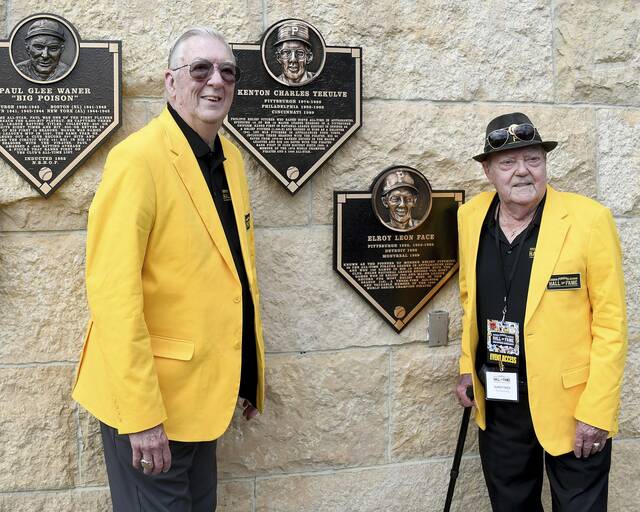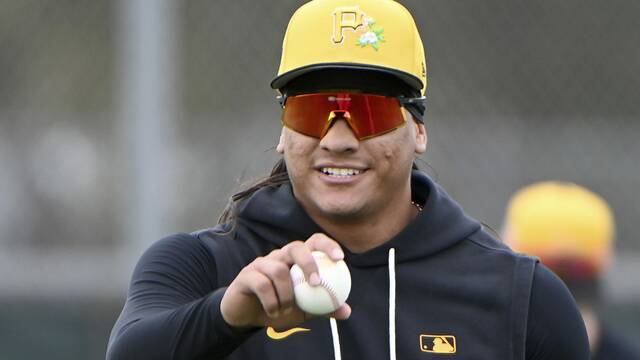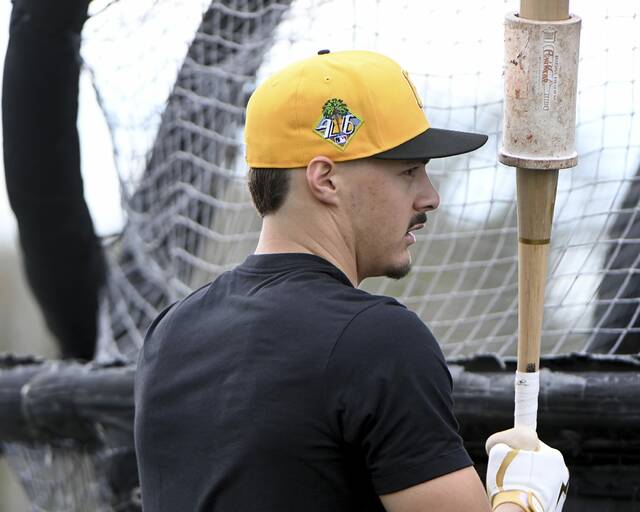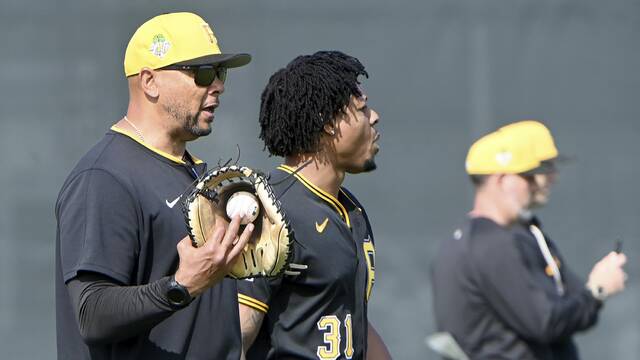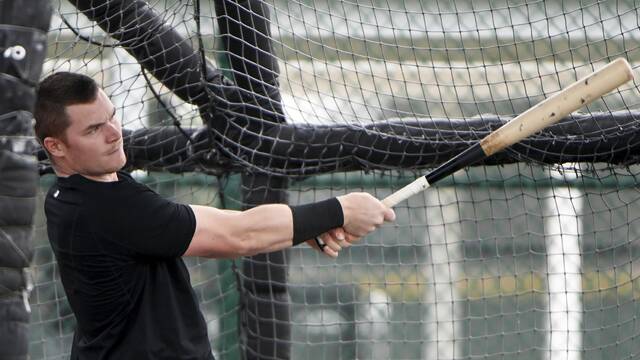When it comes to major-league batters’ recognition skills and their ability to win pitch-by-pitch battles with their mound opponents, Andrew McCutchen was unflinching in identifying a key component that’s out of a hitter’s control and subject to change nightly.
“The strike zone’s horrible,” the Pittsburgh Pirates designated hitter said before Saturday’s game. “We can’t not talk about it. That has a lot to do with it, too — strike zone sucks.”
McCutchen, in the 16th year of an accomplished MLB career that has seen him take more than 7,500 at-bats, has dealt with his fair share of umpires and fluctuating strike zones.
But in 2024, McCutchen said something has changed for the worse.
“It isn’t what it used to be,” McCutchen said. “We used to have (umpires) back there that cared enough about their zone. Now, I don’t know what’s made a change, but it’s bad. It’s just atrocious. That’s plain and simple.”
Of course, it would be easy to dismiss McCutchen as having an ax to grind, given his .182 batting average through Saturday. To be sure, the 37-year-old has not had the hottest offensive start, and that can’t be solely attributed to umpire slip-ups.
However, McCutchen comes off a 2023 campaign in which he tied for the Pirates lead in walks (75) with Jack Suwinski, despite playing in 32 fewer games.
McCutchen’s on-base percentage last year among qualifying players was a team-best .378 and considerably (.039) higher than his next teammates, Suwinski and Connor Joe.
So McCutchen knows a thing or two about the strike zone and how to work it to get on-base.
McCutchen’s frustrations this year have more to do with frequency.
The occasional strike called outside of the zone isn’t unusual, but to McCutchen, that exception has become more of the rule. McCutchen estimates he’s getting one pitch outside the zone called for a strike per at-bat.
“It used to be per game; now it’s per at-bat,” McCutchen said. “Now you go up there like, ‘I’m more than likely going to get one called on me that probably isn’t a strike. I’ve got to accept it, and I’ve got to move on.’ That’s the way the game is now, and it affects people like myself who take a lot of pitches.
“I’ll get myself in a lot of two-strike holes. The pitcher understands, ‘Oh, I can throw it there, so I don’t have to come to him and throw it on the plate.’ Now I’m getting pitched to a little differently. It’s a totally different ballgame.”
Manager Derek Shelton offered a dissenting opinion from McCutchen’s, declining to place responsibility on the umpires.
“You really want me to talk about strike zones? I guarantee you don’t want me to talk about strike zones,” Shelton said with a laugh, doing his best to avoid a fine. “ … I think you take the focus on the hitter itself. Strike zones are mainly consistent. If you go one way or another (with calls), that’s going to happen.
“That’s been going on for 150 years. I think the main focus is focusing on ourselves and not focusing on anything external.”
In fairness to McCutchen, there is hard data that backs up how significant a single ball vs. strike call in an at-bat can be. Per Statcast and Baseball Reference, across MLB this year, batters are managing a .312 average in 0-1 counts.
The call on the ensuing pitch carries a lot of weight, as averages dipped to .156 when down 0-2 vs. .320 when the count is 1-1.
The same dynamic is visible in 1-2 vs. 2-1 counts: Hitters league-wide have posted a .161 average in the former situation compared to .324 in the latter.
In 2-2 counts, averages dip to .163. But when it’s 3-1, batters hit .331.
McCutchen’s individual splits also showcase by-count fluctuation.
When he gets ahead 1-0, he’s batting .226, and after 2-0 counts, he’s hitting .444.
But McCutchen’s average drops to .159 after 0-1 counts, .191 after 1-1 counts and .100 following a 1-2 count.
When McCutchen has found himself in an 0-2 hole, he’s managed only a .059 average.
McCutchen has struggled significantly when falling behind in counts, batting .044, with a .207 average when he’s gotten ahead.
“The common person doesn’t realize what one pitch can do to an at-bat,” McCutchen said. “ … It changes the at-bat, it changes the approach and it changes the outcome more times than not. One pitch called out of the zone, the batting average exponentially goes down. That’s key to the outcome. It really is.”
Naturally, batters must make adjustments depending on what count they find themselves in.
In a matter of seconds, a hitter looking to take a hard swing might rethink doing so when a pitch they figured was a ball gets called a strike.
“That puts a guy in a position where he becomes a defensive hitter as opposed to an offensive hitter,” McCutchen said, “because he understands that the zone is bigger, so that pitch that was called off the plate, (the pitcher) is more than likely going to throw it out there again, and then I’ve got to protect.”
McCutchen is far from the first MLB player to voice his concerns with umpires and their differing strike zones.
Last May, USA Today reported that MLB is considering implementing automatic strike zones as early as 2025.
Whether that comes to fruition, and whether McCutchen is even still active to experience it as a player, remains to be seen. For now, McCutchen stands firmly behind his beliefs.
“A lot of people do the whole, ‘It was close enough — you might as well accept it.’ No. We were taught as professionals what the strike zone was, and we’re good enough to understand if a pitch is a little off, we know it’s a little off,” McCutchen said. “That’s how good we are with awareness of the strike zone.”




